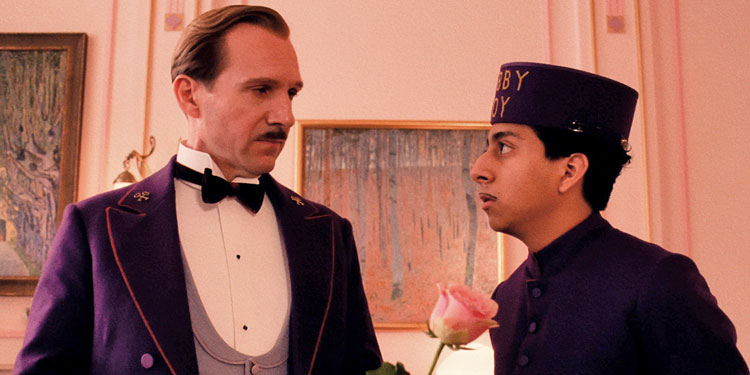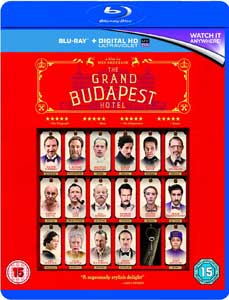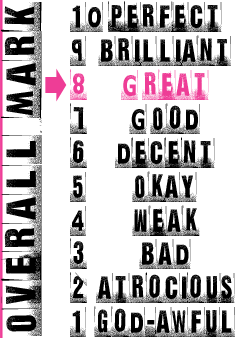
Director: Wes Anderson
Running Time: 95 min
Certificate: 15
Release Date: July 7th 2014 (UK)

I should probably start off by saying I’m generally not a great fan of director Wes Anderson. I’ve found most of his films far too pleased with themselves and so obsessed with their own quirkiness that it actually got in the way of the film rather than enhancing it.
That said, The Grand Budapest Hotel is the first Anderson movie I’ve enjoyed from end to end since the director’s debut, Bottle Rocket. Previously Anderson’s idiosyncratic style has leaned towards farce while pretending it was something else. With his last film, Moonrise Kingdom he went full farce for large chunks of the film, and they were undoubtedly the best bits.
Now with Grand Budapest he’s created something that is true farce, and thanks to his undoubted gift with character and a great cast, it works brilliantly. It also helps that while Anderson has become known for casting the same people repeatedly in his movies – Owen Wilson, Bill Murray, Adrien Brody, Edward Norton – he largely gives this film over to new faces. All the regulars do show up, but they are generally given very small cameos.
Top marks have to go to Ralph Fiennes, who’s simply superb as the film’s central character, M. Gustave. Indeed if comedy were given it proper dues at awards season, he should probably have gotten an Oscar nomination.
In the opening few minutes I was admittedly primed to find the film too smug for its own good, as it starts by setting up the tale in a triple flashback. It opens with a present day woman reading a book, then back to 1985 when the author of that tome (Tom Wilkiinson) starts to relate the tale, then further back to 1965 when he met Mr. Moustafa (F. Murray Abraham) in the crumbling Grand Budapest Hotel, who then takes us into the 1930s where we sees the hotel in its prime.
Back then M. Gustave runs the hotel and is beloved by all the guests – many of whom he sleep with. However after one of these ‘friends’ (briefly played by Tilda Swinton in old-age makeup) dies, M. Gustave inherits a priceless painting, much to the chagrin of her son, Dmitri (Adrien Brody), who thinks everything should be his. After it’s discovered the old woman was murdered, M. Gustave is framed for her murder and locked up.
With the help of his trusted bell boy, Zero (Tony Revoli), M. Gustave must escape and get to the bottom of what’s going on.
It’s charming and just the right sort of whimsical, mixing humour and silliness with some great characters and well placed ideas about the place of decency in the face of great obstacles. Indeed, while it’s set in a very Wes Anderson, hyper-stylised rather theatrical world that’s two steps from reality, it also has some good points to make about the rise of fascism.
The Grand Budapest Hotel is a great little film and a very funny one, and Anderson’s world looks great in HD. However one of his affectations may confuse you initially, as each of the different time periods has a different aspect ratio, so the first couple of scenes have black bars all around the picture on a widescreen TV, while the 1960s are at 2.35:1 (i.e. black bars at the top and bottom), while the 1930s are 4:3 (black bars either side). For the most part it’s fine, but initially it’s slightly odd. To tip you off to all this the film starts with the message ‘set your monitor to 16:9’.
There are also some decent features, most of which are suitably quirky, such as Bill Murray showing us around the town the film was shot in, and some vignettes setting up The Grand Budapest Hotel world.
Overall Verdict: He may have his ardent fans but for me Wes Anderson has always been a set of quirky tics in search of something to properly pull it all together – and with The Great Budapest Hotel he may just have found it.
Reviewer: Tim Isaac





Leave a Reply (if comment does not appear immediately, it may have been held for moderation)